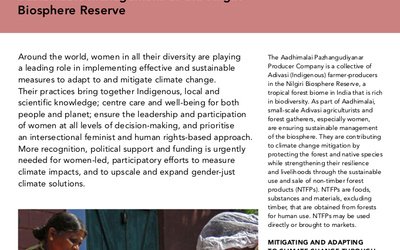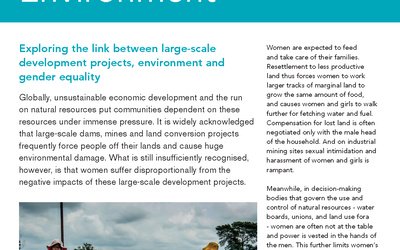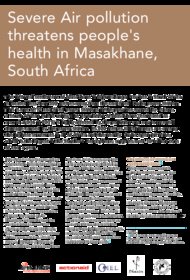Keystone Foundation
Keystone Foundation
active in the following countries
works with Both ENDS on
Keystone is working in the Milgiri Biosphere Reserve with indigenous communities on eco-development initiatives. In their work they focus on seven themes: livelihoods, conservation, organic market development, culture and people, environmental governance, training and information, and finance and administration. Both ENDS and the Keystone Foundation work together on the development and marketing of Non Timber Forest Products (NTFP).
added value of partnership
"Both ENDS brings a very unique flavour to the partnership where its involvement in the activity is very wholesome. It connects a worldwide perspective to the local issues on the ground. When Both ENDS gets involved, you know that they believe in what they say and what they do."
EXTRA
Keystone works mainly with indigenous people in the field of eco-initiatives and functions as the contact point for the NTPF-Exchange Programme in India.
External links

-
Transformative Practice
Non-Timber Forest Products (NTFPs)
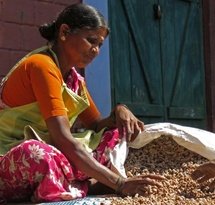
About one in every six people, particularly women, directly rely on forests for their lives and livelihoods, especially for food. This shows how important non-timber forest products (NTFPs) and forests are to ensure community resilience. Not only as a source of food, water and income, but also because of their cultural and spiritual meaning.
-
News / 24 November 2022
Women Barefoot Ecologists won a Gender Just Climate Solutions award at COP27
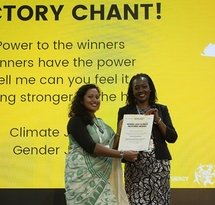
At this year's UN Climate Conference COP27, Bhavya George, Climate Change coordinator of our partner organisation Keystone Foundation won one of the Gender Just Climate Solutions awards. Her project "Women Barefoot Ecologists", which also is supported by the Global Alliance for Green and Gender Action (GAGGA), won in the category "Transformational Solutions".
-
Publication / 4 November 2022
-
Press release / 8 August 2022
Indigenous knowledge and languages crucial in the fight against climate change
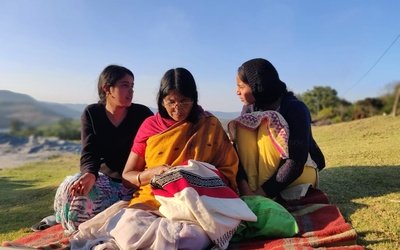
Amsterdam, 8 August 2022 – In most countries around the world, the extensive knowledge of Indigenous peoples on nature, food, health, cultural traditions and Indigenous languages receives insufficient appreciation and attention in education and policy. The Indigenous-Led Education (ILED) Network believes that this must change. To mark the International Day of the World's Indigenous Peoples on 9 August, the ILED Network is calling for more support for the transfer of this Indigenous knowledge, which also plays a major role in resolving the biodiversity and climate crises.
-
News / 17 September 2021
Beyond trees: the importance of Non-Timber Forest Products for communities
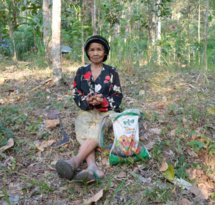
About one in every six people, particularly women, directly rely on forests for their lives and livelihoods, especially for food. This shows how important non-timber forest products (NTFPs) and forests are to ensure community resilience. Not only as a source of food, water and income, but also because of their cultural and spiritual meaning.
-
External link / 20 July 2021
Women’s rights and Non-Timber Forest Products (Annual Report 2020)
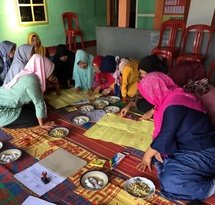
As a source of food, water and income, and for their cultural and spiritual meaning, forests and Non-Timber Forest Products (NTFPs) help ensure community resilience. Both ENDS has a long history of collaboration with partners such as the Non-Timber Forest Products Exchange Programme (NTFP-EP) and Keystone Foundation, which support forest communities in promoting the NTFP concept for forest conservation and livelihood enhancement.
-
External link / 31 May 2018
A human rights perspective on women and the environment (Annual Report 2017)
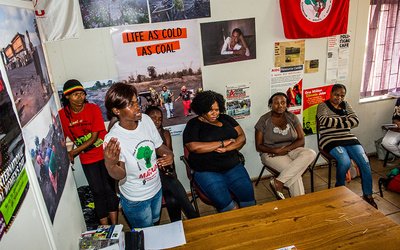
Although the human rights to water, food and a healthy environment have been incorporated in international legal instruments, in many countries these rights are violated on a massive scale. Women suffer disproportionally, because it is mostly still their role to feed the family and fetch water, but also because they lack decision-making power over the use of natural resources.
-
Publication / 3 November 2017
-
Video / 3 November 2017
Reality of Mine: India

This short video takes you to Panna, India, where traditional adivasi women successfully oppose forced evictions. The three part series 'Reality of Mine' gives a voice to women affected by mining in India, Kenya and South Africa. With the support of international NGOs Both ENDS and ActionAid, they have begun to stand up for their rights.
-
Publication / 14 February 2016









